Phonological Awareness
An Essential Pre-reading Skill
Phonological awareness is an essential pre-reading skill. It is a predictor of future reading success and needs to be present for reading to begin.
If you are the parent of a child who is at kindergarten or who is in the first grade at school, you may have heard your child's teacher mention it.
As a reading teacher of children and adults, I know how important this pre-reading skill is. Without it, reading is a difficult skill to master.
From my experience (and research backs this) if your child possesses phonological awareness then it is highly likely they will become a competent reader.
If not it might suggest your child has some type of
language problem that needs to be addressed. Be assured, however, much can
be done to rectify this if it is dealt with early enough so don't hesitate to seek help if you are concerned.
Learn Young Or Go Back
I teach a 37-year-old woman, who until recently, could not read. I had to help her develop phonological awareness before I could begin teaching her to read.
In other words I had to take her back to the level of a 3 or 4 year old!
Let me explain in more detail precisely what phonological awareness is, and then I'll give you some free tips on how I encourage it in young children I teach.
Phonological Awareness Defined
Phonological awareness involves your child's ability to consciously listen and be able to tell the difference between distinct sounds in spoken language.
Note, I'm not referring here to your child's actual understanding of the words' meanings.
It's about their ability to 'tune in' to hear and recognise patterns that can be heard in words.
Without it they might not be able to hear the difference between words like 'cap' and 'lap' or 'hand' and 'sand.
Phonological awareness involves being able to manipulate sounds in their heads and say them aloud.
That's a slightly more complex process and something I will go into more detail about at another time.
It Can Be Started Early
Phonological awareness is about sound, not words on
a page. Children begin to show signs of developing it at about 3 years of age and this further develops over the
next two years.
The First Sign of Phonological Awareness
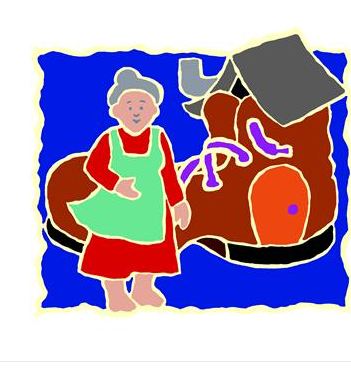
If your child can recognise a rhyme, this is the first sign of phonological awareness.
Even before they can recite a rhyme, they will be able to indicate that they recognise a sound pattern or rhythm. They often smile or laugh when they hear the pattern repeated. This awareness is important long term, as many words have matching sound patterns and have similar spellings.
As your child matures and reading progresses, this awareness of sound patterns is invaluable.
It helps them to identify letter sequences when they read. Like deciphering Morse code, teachers refer to this as 'decoding'.
Once your child can decode, they will be able to reverse the process and 'encode'. This means they will be able to sound out the patterns of many words so that they can write them as well as read them.
It's important to point out here that your child doesn't need to know their alphabet letters to develop phonological awareness. It is more important initially that they learn to make the sounds the individual letters of the alphabet make when they are spoken.
It doesn't matter what language you speak, the development of phonological awareness follows a similar, predictable pattern.
Initially your child will respond to larger chunks of spoken language. Over the next couple of years, providing development is normal, they will be capable of manipulating smaller parts of sound.
By recognising rhyme your child will eventually learn to break words into smaller parts and recognise these 'bites' in words as they encounter them. This skill will turn them into a good reader and speller.
Activities Develop Phonological Awareness
Your child needs actual activities to ensure phonological awareness develops. Start with your newborn if you can and read to them. Read stories, poems and rhymes. Let them hear your voice reading words. While they may not be able to respond they are absorbing sounds and laying down the foundations for language and in particular phonological awareness.
Here are some of my tips on developing phonological awareness... fun things you can do with your child anywhere from 3 years of age onwards.
Just remember not all children develop at the same rate. Boys can sometimes be a little slower to start.
Your child may develop this slightly earlier or later. On average, however, they should be showing signs of it in their 3rd to 4th year.
Try This
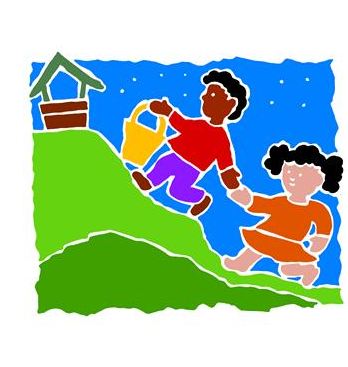
Act out nursery rhymes.
'Jack and Jill' is a good example. Get your child to hold your hand and carry a bucket in the other. Recite the nursery rhyme to them and as you do, walk to the rhythm of the rhyme.
The next time, stamp a foot when you reach a rhyming word.
Here is the rhyme. Stomp or bend your knees ( in an exaggerated way) on the rhyming words below. I have made them bold to make it clearer for you.
Jack and Jill
Went up the hill
To fetch a pail of water.
Jack fell down
And broke his crown
And Jill came tumbling after.
Up Jack got
And home did trot
As fast as he could caper.
Went to bed
And wrapped his head
In vinegar and brown paper.

Have Fun
Let yourself go, laugh a lot and encourage your child to feel the rhythm and fun in this. They'll love it if you pretend to be Jill or Jack (depending on whether or not you are teaching a boy or a girl.)
If you really exaggerate the story behind the rhyme and pretend to fall on the ground at the appropriate part, your child will want to keep playing and learning.
This, of course, is one of the best ways children learn. They are employing all parts of their brain by moving, speaking and feeling emotionally involved. And of course, the other magical ingredient...they're having fun!
They have much more chance of remembering it if you do it this way, by employing all of their senses. In time, when you are too exhausted to do it any longer, encourage your child to do it with a sibling or friend. This will reinforce it even more.
After acting it out time and time again, without realising, they will begin to develop an awareness of rhythm, pattern and that words are made up of more than one syllable.
Most children won't understand what a syllable is at this stage but they will start to feel the difference in sound between a word made up of a single syllable like 'Jack' or three syllables, like in the word 'vinegar.'
This knowledge is an essential step in the process of learning to spell in the years to come.
Just remember, it's not essential that they understand what words like caper or vinegar mean at this stage. It is their ability to hear and respond to the rhythm that is important. You can of course explain them if you want to.
List of Nursery Rhymes To Try
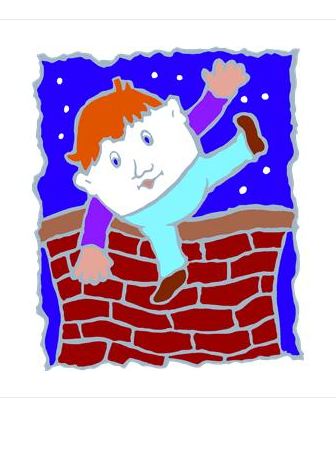 |
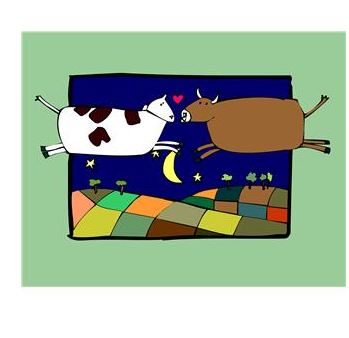 |
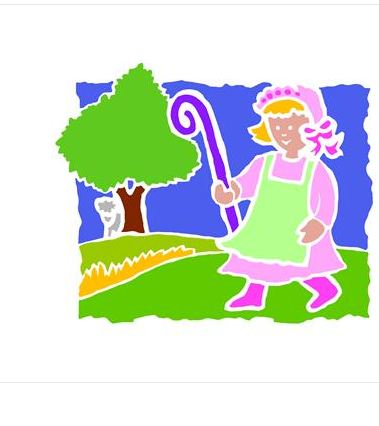 |
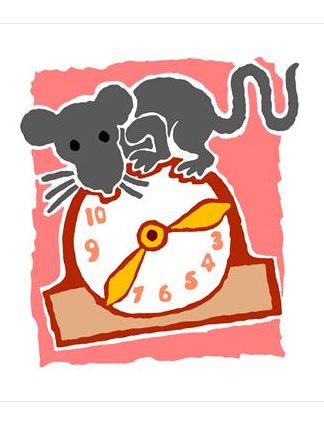 |
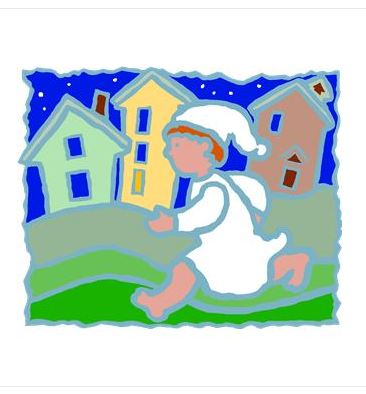 |
I have selected several popular nursery rhymes...as you will probably be familiar with them and find them easier to work with.
*Humpty Dumpty (act out sitting on the wall, then having a great fall...but do it gently!
*Hey Diddle Diddle
*Little Bo Peep
*Hickory Dickory Dock
*Wee Willie Winkie
*Baa Baa Black Sheep
*Ding Dong Dell
If you can't act out the rhyming words, raise your hands in the air or clap to the rhyme.
Next Important Stage
Next, teach your child how to clap out the syllables in their first name. You can take their hands in yours and help them initially.
Here are some examples if you're not sure.
· The name Jade would be one clap, Jade
· Charlie would be clapped as Char/lie (two claps)
· Jessica (Jess/i/ca) three claps
· Sebastian (Se/bas/ti/an) four claps.
Another great and fun way to teach this is to buy some cheap car mats for just a few dollars. Spread them on the floor with short gaps between each one. Get your child to jump from one to the other as they say each syllable.
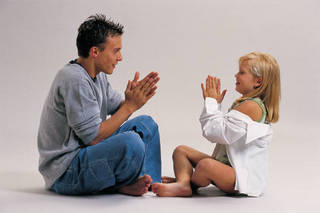
Four Top Tips
Here are four of my top suggestions for developing the listening skills needed to kick start the phonological process.
* Reduce the amount of time your child spends on television and computers. Children begin to 'tune out' after a while. Give them periods of silent time so that when they hear something it holds some importance.
*Read to your child every day. By doing this you are not only sharing the excitement of reading with them but you are modelling reading behaviour, making your child aware of the value you put on books. They too will develop this love if you lead by example.
* Play a game where you make a particular sound and if your child comes to you when they hear it you reward them with a stamp or sticker. You could have a particular sound each day, for example an animal noise one day, a drum beat another.
* Always speak clearly to your children, even if it means you over- enunciate when they are young. You'll be surprised how much they learn from you without you realising it!
Ensure they can hear the beginnings and endings of the words you speak in normal conversation with them.
I have taught adults with poor literacy who are stunned when they find out that words like 'going' have a 'g' at the end of them. Their parents spoke so badly when they were growing up that they had no idea how to pronounce or spell such words.
A Solid Start
Just as a house can't be built until the foundations are laid, reading can't progress until phonological awareness has developed.
Get started as soon as your child is ready and you'll be the architect of your child's reading and spelling success.
Go From Phonological Awareness to Teaching Phonics
Go to Phonics Literacy Homepage




